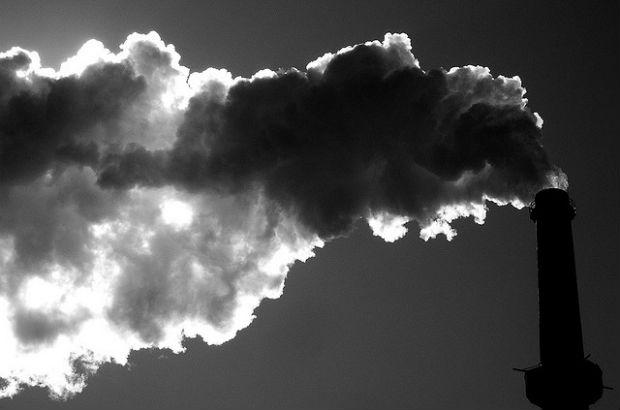One major component of the Oregon Climate Action Plan (OCAP) is a directive for the state Department of Environmental Quality (DEQ) to set up a new program to “cap and reduce” the climate-harming pollution released by Oregon’s largest polluters. By no longer allowing these major polluters (like oil companies, fossil gas companies, and industrial manufacturers) to spew unlimited amounts of greenhouse gas emissions, this new policy can help transition Oregon to cleaner ways of powering our economy and communities.
DEQ recently hosted a series of technical workshops, during which Climate Solutions and our partners provided input on what a robust cap-and-reduce program should include. These discussions illuminated the divergent paths DEQ could take with the cap-and-reduce program—on the way to a strong or weak program. These include how rapidly the pollution limits should go down over time (the “cap decline”), whether to provide exemptions to polluters, and whether and how frontline communities are prioritized. DEQ’s eventual program design choices will have major implications for our ability to reduce pollution, address the climate crisis, and meet our state’s climate goals. Read on for an overview of the workshops, followed by a discussion of some key decisions hanging in the balance.
In this article:
Six Workshops down, three Town Halls coming up

Before unpacking the technical workshops, here’s a short update on where we are in the cap-and-reduce program development process. DEQ is currently in Phase 2 of its work to develop the program. Phase 1 included the development of a report to the Governor outlining the process DEQ plans to use over the next year or so to develop the program. In Phase 2, DEQ is continuing to solicit public input to help inform policy options before the official rulemaking process begins. As part of this Phase, DEQ scheduled a total of nine public meetings between August and October 2020: six Technical Workshops and three Town Halls.
The technical workshops, which were held over the past month and a half, covered six main topics with a series of questions to dive more deeply into each. The slide below from DEQ’s public engagement process kick-off provides a sense of some of the topics/questions that were discussed at each workshop.

DEQ has provided issue briefs and presentation slides for each of the workshops and is also providing summaries of the discussion at each workshop, all of which can be accessed here.
The upcoming Town Halls will provide an opportunity for DEQ to share the input they received during the technical workshops, explain what to expect during the rulemaking phase, and to receive input and comments on program design and priorities.
Key decisions hang in the balance
As DEQ kicked off its process, Climate Solutions put together some FAQs about the process and policy, including some guiding principles for what a strong and equitable cap-and-reduce policy would look like. The discussions during the workshops illuminated the differing paths DEQ could take with the cap-and-reduce program - on the way to a strong (or weak) program. The agency will be making decisions about the following key issues in the process- and you can help shape the outcome.
Exempt some pollution sources and climate pollutants from regulation or cap them all?
Two of the key questions discussed during the workshops were which greenhouse gases should be regulated and which polluters should be regulated. The graphic below provided by DEQ during the first workshop shows some of the different pollutants being released, as well as some of their largest sources.

There was a robust discussion of which gases and pollution sources should be included or exempted from regulation. Unfortunately, DEQ itself raised concerns about including fossil gas power plants that generate electricity in the state, despite these power plants being responsible for half of all climate-harming pollutants released from major stationary sources in Oregon.
OUR VIEW: DEQ should include all greenhouse gases and polluters they have the authority to regulate; no exemptions
- Climate change—fueled by greenhouse gases released primarily from burning fossil fuels—is already hurting Oregon’s health and economy, and these impacts are expected to worsen if strong action is not taken;
- DEQ has the authority to regulate greenhouse gases and greenhouse gases are defined broadly in Oregon statute;
- DEQ should regulate and reduce emissions from all major sources of climate pollution, including large stationary sources (including in-state electricity generating power plants, i.e., gas plants), transportation fuels (including gasoline and diesel), and emissions from all other liquid and gaseous fuels, including natural gas
- These are some of the largest sources of climate and air pollution in the state, and currently emit greenhouse gases unabated despite the climate crisis unfolding in our state and beyond.
Require reductions consistent with the best available science, or continue to put off reductions?
The Oregon Climate Action Plan (OCAP) requires DEQ to develop a regulatory program that limits and progressively reduces climate-harming pollution from major sources in the fossil fuel and other industrial sectors. As a result, a key part of the discussion is where to set the cap and how fast it declines over the years. DEQ explained at Workshop 2 that there are “countless cap trajectory options” and provided an illustration of some of the differences in the graphic below.

You can see from the graphic that there are stark differences between which trajectory DEQ ultimately chooses. The red line would require steeper reductions from the start while the orange line would allow reductions to be put off until later. And, there are many options in between. Scientific consensus indicates that the red line is closest to what is currently needed because reducing our near-term emissions is of critical importance.
OUR VIEW: The declining cap should guarantee that reductions occur at the pace and scale to meet the state’s mandatory climate targets, require and front-load early reductions, and track the best available science over time.
- Climate change is already hurting Oregon’s health and economy with impacts expected to worsen if strong action is not taken.
- The state’s mandatory climate targets are based on the scientific imperative to reduce emissions to avoid the worst impacts of climate change, and therefore, need to be achieved.
- Cap-and-reduce is the program with the mandate to regulate multiple sources and sectors that account for the majority of Oregon’s emissions, so it has a critical role to play in guaranteeing the state meets its climate targets.
- Science says we need to reduce emissions sooner rather than later to avoid locking in the worst impacts.
- Reducing emissions earlier will put us in a better position to meet our state climate targets.
- Climate action should be guided by the best available science. Given the ongoing and long-term nature of the cap-and-reduce program, DEQ should ensure the cap continually reflects the best available science.
Continue historical inequities or put impacted communities front and center?
Communities on the frontlines of the climate crisis (called “impacted communities”) have historically borne the brunt of climate and air pollution and the cap-and-reduce program provides an opportunity to help address this injustice by requiring polluters to reduce their pollution. In addition to a focused workshop on impacted communities (Workshop 6), DEQ also noted throughout the other workshops that many of the program design options being considered could either benefit or harm impacted communities. For example, if, in the name of potentially lowering the cost of compliance, DEQ allows industry to continue polluting on-site, but allows compliance with the program through other means, communities living and breathing around those facilities could continue to bear the brunt of the pollution and health effects. We appreciated DEQ expressing this level of awareness of the true trade-offs of policy design potentially borne disproportionately by communities of color and low income residents, but there is much more work ahead to ensure the program design options reflect the needs of impacted communities.
As part of Workshop 6, DEQ provided the following proposed structure of the Rulemaking Advisory Committee which will help oversee the rulemaking work ahead:
Of the minimum 19 seats proposed, 2 are for Tribes and 2 are for frontline communities. Industry on the other hand is allotted 7 seats (2 for large GHG-emitting facilities, 2 natural gas suppliers, 2 transportation fuels suppliers, and 1 other non-transportation fuels) and could potentially be awarded another 2 seats through the 2 general business organization seats. The current disparity in Rulemaking Advisory Committee seats weighted toward industry interests is untenable. It also sets up the potential for further disparity.
OUR VIEW: The cap-and-reduce program must center impacted communities by ensuring an over-representation of these communities on all advisory and oversight committees as compared to industry, as well as maximize the benefits for, and prioritize the needs and interests of, these communities.
- Tribes, communities of color, low-income communities, and other impacted urban, rural, and coastal communities around Oregon are on the frontlines of climate change and experiencing the impacts of climate change first and worst.
- These communities are also often disproportionately harmed by toxic air pollution from industrial operations, cars, trucks, and the burning of fossil fuels for energy – many of the same pollution sources to be regulated under the cap-and-reduce program.
- Centering the voices and needs of Black, Indigenous, people of color and other Tribal and frontline communities is critical to ensuring equitable outcomes from the cap-and-reduce program.
The items outlined above are just some of the key decision points that were illuminated during the technical workshops. Click here to read DEQ’s materials and technical workshop summaries.
What’s next: Your voice is needed!
The Oregon Department of Environmental Quality (DEQ) has a responsibility to protect our state’s environment and public health—not the fossil fuel industry’s bottom line. Ultimately, the cap-and-reduce program should be about reducing emissions as quickly as possible and protecting and benefiting impacted communities. Along with our partners, we are taking that message to the Town Halls in October; please join us!






